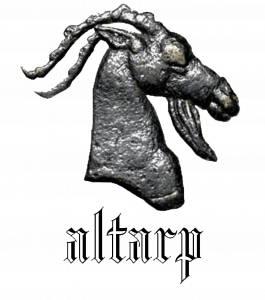The First Amendment doesn’t give you any rights!
Too many people parrot the phrase “my first amendment rights” as if the First Amendment to our Constitution gave us some rights. Maybe it is just being semantically picky to insist that the First Amendment gives us nothing. We naturally have the rights enumerated in the Bill of Rights. By being born a human being with the cognition unique to our species, we can think or say anything we please. Only some outside force through aggression can attempt to silence us or impose some system of belief upon us. Even then we are free to think and say anything but most of us quickly learn when to keep our mouths shut. Censorship comes most often at the personal level, from a parent, spouse, acquaintance, a bully, or the political correctness police.
The Bill of Rights limits the Federal Government
All the Bill of Rights does is guarantee that our national government can do nothing to take away our natural rights.
Specifically in the case of the first amendment, the Federal Government through Congress “shall make no law respecting an establishment of religion, or prohibiting the free exercise thereof; or abridging the freedom of speech, or of the press; or the right of the people peaceably to assemble, and to petition the government for a redress of grievances.”
What about the states? Can they impose a religion on us, or tell us when to be quiet, or prevent us from assembling peacefully on a street corner?
Over the years the courts, and most importantly the Supreme Court, have selectively ruled that certain provisions of the Bill of Rights also apply to the states. It is called the Incorporation Doctrine. The Legal Information Institute of the Cornell University School of Law provides a good discussion of the Incorporation Doctrine citing relevant court decisions. (HERE)
The Fourteenth Amendment to the Constitution was ratified in 1868 as part of reconstruction after the War Between the States to insure that state and local governments were prohibited from depriving persons of life, liberty, or property without due process of law. The Supreme Court has relied heavily on the 14th Amendment (as well as the 5th) to selectively require states to uphold our natural rights while at the same time allowing states and cities wide latitude to govern locally.
The First and Second Amendments apply to the States
The First and Second Amendments are fully incorporated as a consequence of Supreme Court Rulings:
Freedom of Religion
Freedom of religion is not as simple as it sounds. Freedom of Religion means only that you may believe anything you want without interference government. The freedom to act, unlike the freedom to believe, is not absolute.
When it comes to the exercise of religion, ritual and actions, the court has laid down decisions that govern hundreds of special situations: regulation of religious solicitation, tax exemptions, access to public property, church exemption from some laws, Sunday closing laws, conscientious objection, religious ritual at government functions, rituals that violate drug laws, and many more.
The No Religious Test Clause of the U.S. Constitution says “The Senators and Representatives before mentioned, and the members of the several state legislatures, and all executive and judicial officers, both of the United States and of the several states, shall be bound by oath or affirmation, to support this Constitution; but no religious test shall ever be required as a qualification to any office or public trust under the United States.” (Article VI, Section 3).
The Constitution of the State of Texas says something similar to the U.S. Constitution but with a small twist: “No religious test shall ever be required as a qualification to any office, or public trust, in this State; nor shall any one be excluded from holding office on account of his religious sentiments, provided he acknowledge the existence of a Supreme Being.” Texas has agreed not to enforce the last clause but it remains in the State Constitution. Similar provisions in the constitutions of Maryland and South Carolina have been struck down by the U.S. Supreme court. Mississippi, Tennessee, and Arkansas continue to have similar provisions.
Article 19 Section 1 of the Arkansas Constitution, titled “Atheists disqualified from holding office or testifying as witness”, states: “No person who denies the being of a God shall hold any office in the civil departments of this State, nor be competent to testify as a witness in any court.”
Arkansas does not enforce this article and it appears obvious that the fourteenth amendment to the U.S. Constitution by Incorporation prohibits such a religious test.
Freedom of Speech
In Gitlow v. New York , the Supreme Court ruled that New York’s Criminal Anarchy Law passed in 1902 could limit freedom of speech because it outlawed “language of direct incitement”, which is not “the expression of philosophical abstraction.” Similarly advocacy of the use of force is not protected speech when it is “directed to inciting or producing imminent lawless action.”
What about other limits on the freedom of speech? Several states still have blasphemy laws on the books.
Massachusetts, General Laws, Chapter 272, Section 36 states:
“Whoever willfully blasphemes the holy name of God by denying, cursing or contumeliously reproaching God, his creation, government or final judging of the world, or by cursing or contumeliously reproaching Jesus Christ or the Holy Ghost, or by cursing or contumeliously reproaching or exposing to contempt and ridicule, the holy word of God contained in the holy scriptures shall be punished by imprisonment in jail for not more than one year or by a fine of not more than three hundred dollars, and may also be bound to good behavior.”
In addition to Massachusetts, Michigan, Oklahoma, Pennsylvania, South Carolina, and Wyoming, still have blasphemy laws on the books even though they are not enforced.
In Massachusetts, poor Abner Kneeland was sentenced to 60 days in jail for seditious blasphemy. His case involved not only freedom of speech but also freedom of the press; he was a journalist who a published in The Boston Investigator a “scandalous, impious, obscene, blasphemous and profane libel” of and concerning God. He appealed his conviction to the state supreme court, which took two years to uphold his conviction. Kneeland served his 60-day sentence in summer of 1838 and then moved to Iowa to found a community of free-thinkers, which failed, so he turned his attention to politics as a Democrat. But even as a Democrat, being an “infidel” doomed his career as a politician.
Freedom of the Press
Over the years the “Press” has evolved from people using printing presses, large and small, putting ink on paper to say almost anything whether true or not, to other “Media” both large and small saying almost anything whether true or not. Media now includes not only ink on paper but extends to radio, television, movies, and the Internet. Now the Mass Media reaches huge audiences and has the ability to sway the opinions of millions of people. Unfortunately many so-called news outlets have evolved into propaganda outlets for various ideologies as well as political and financial interests.
The financial clout of media generally protects it from interference by government at all levels. Media accountability is a term to express the idea that powerful propaganda outlets should answer to the public interest but few organizations are able to effectively instill a high regard for the truth in media.
In the Western World, media is financed by commercial interests. Most commercial interests rely on a mass of customers buying their goods and services. They are generally sensitive to the welfare of their customers on whom they depend for their profits.
When a television news outlet publishes immediately verifiable false information, other opposing outlets pounce on them in the relentless quest for viewers. The Internet lights up, Twitter goes crazy, and soon the controversy disappears from public view.
Freedom of Assembly
The First Amendment explicitly prohibits the Federal Government from infringing “the right of the people peaceably to assemble, and to petition the Government for a redress of grievances.” As a consequence of Incorporation, other governmental entities may not infringe the right of people to peacefully assemble themselves. If during such assemblies, the people wish demand a redress of their grievances, government is prohibited from infringing that right.
The key to this guaranteed freedom is “peacefully.” Other considerations are the property rights of places where people may want to assemble. States and Cities may require permits to use public property, or to impede traffic on public streets. Private property owners may prohibit use of their property for assemblies or may also charge a fee for using the property.
Freedom of assembly does not allow anarchist groups like Antifa to destroy property. Such activities make a mockery of constitutional freedom.
The gradual evolution of our Constitution and the great difficulty to amend it are among its strengths. This is certainly a conservative view. People on the ideological right are suspicious of calls for rapid change, such as the recent outcry to eliminate the Electoral College codified by Twelfth Amendment. It was ratified in 1804 and has withstood the test of time.
Our era of the Internet has created a population overloaded with information of dubious validity who demand immediate gratification and affirmation of their subjective and fleeting values. Cable news is remarkably shallow in its quest for marketable sensationalism. As demonstrated by many recent elections, mediocre people are elected to high and low political office on the slimmest of electoral margins. The only way most people know the candidates for whom they vote is through paid media presentations. In the final analysis all media presentations are paid for by somebody and all should be suspect. A random toss of a coin could produce similar results.
Here is a list of amendments that have been not been incorporated to apply to the states although some states do provide such protections in the state constitutions and laws.
Amendment III – prohibition against quartering of soldiers in civilian homes.
Amendment V – the right to indictment by a grand jury. (Double jeopardy and self-incrimination have been incorporated)
Amendment VI – right to a jury trial in civil cases.
Amendment VII – Suits at common law. (Jury selected from residents of crime location has not been incorporated.)
Amendment VIII – Cruel and unusual punishments inflicted (excessive fines has not been incorporated) Federal and State Governments have some problems in this area. What constitutes excessive fines? J.P.Morgan Chase-$13 Billion? British Petroleum – 3 Billion?
This interesting commentary is instructive.
Amendments IX and X – only apply to the U.S. Constitution
Additionally, in Gideon v. Wainwright (1963), the Court ruled that states must provide legal counsel to indigent criminal defendants, while Brown v. the Board of Education (1954) struck down a state’s ability to discriminate in public education on the basis of race.




Community Discussion
Be respectful, but please speak your mind! We want a healthy discussion. There are no right or wrong answers here.